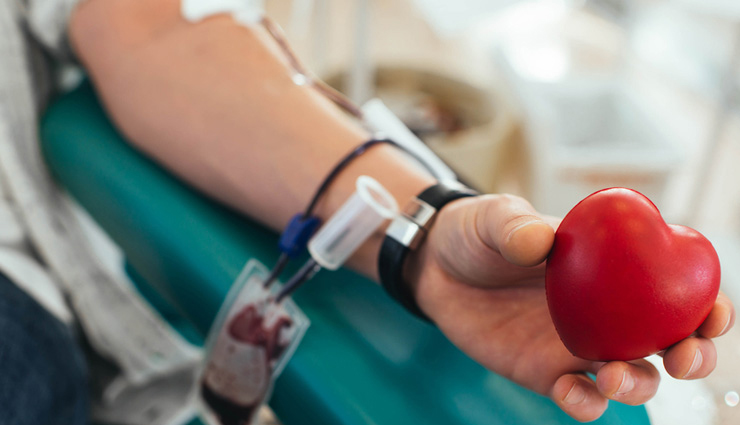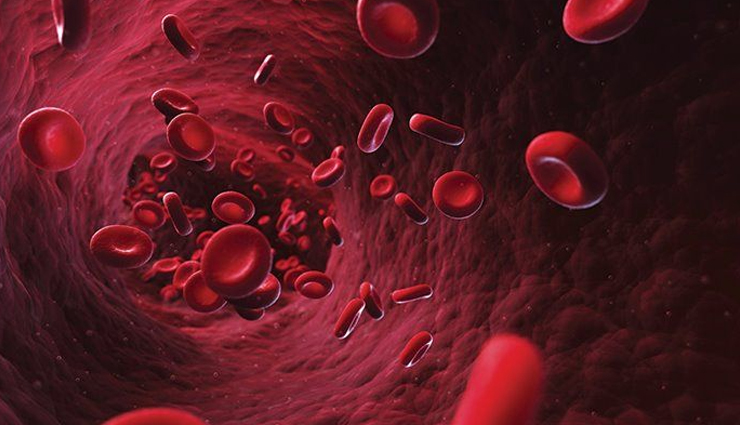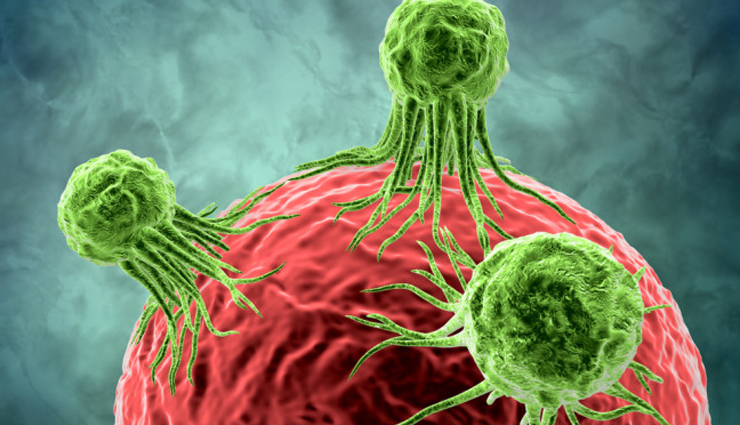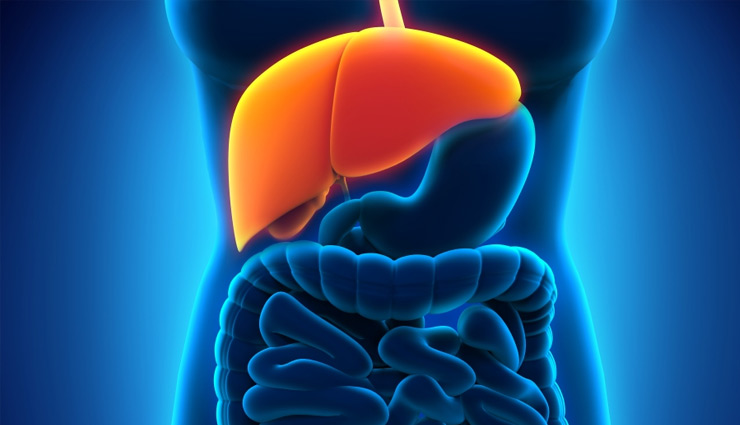- Home›
- Healthy Living›
- World Blood Donor Day : 6 Benefits Of Donating Blood On Your Health
World Blood Donor Day : 6 Benefits Of Donating Blood On Your Health
By: Priyanka Maheshwari Wed, 14 June 2023 09:20:40

Donating blood is an act of altruism and compassion that involves voluntarily giving a part of oneself to help others in need. It is a selfless contribution that can save lives and make a significant difference in the well-being of individuals facing medical emergencies or undergoing various medical treatments.
Blood donation is a process where a person willingly provides their blood, which is then collected and used for various medical purposes. The donated blood is carefully screened, processed, and stored to ensure its safety and effectiveness before it is used for transfusions or other medical procedures.
The primary purpose of blood donation is to replenish the blood supply in healthcare facilities, such as hospitals and clinics. Blood is a vital resource required for surgeries, trauma care, organ transplants, and the treatment of various medical conditions like anemia, cancer, and blood disorders. It is also essential in emergency situations where rapid blood transfusions can be life-saving.
Blood donation is a relatively simple and safe procedure that typically takes around an hour to complete. Before donating, individuals undergo a thorough screening process to ensure they meet the necessary criteria and do not have any conditions that may pose risks to themselves or the recipients of the donated blood.
By donating blood, individuals have the opportunity to make a tangible and direct impact on the lives of others. Each donation has the potential to save up to three lives, as the collected blood can be separated into its components (red blood cells, plasma, and platelets) and used to treat multiple patients.
Apart from the immediate benefits to recipients, blood donation also has long-term advantages for donors. It can promote a sense of fulfillment and purpose, knowing that their contribution has made a positive impact on the lives of others. It also provides an opportunity for individuals to check their own health, as the screening process often includes tests for various medical conditions, such as anemia, hepatitis, and HIV.

# Giving blood can reveal potential health problems
While not a substitute for a medical check-up, donating blood can serve as an additional means to monitor your cardiovascular well-being. Prior to the blood donation, you will undergo a mini-physical examination, during which a healthcare professional will assess your pulse, blood pressure, body temperature, hemoglobin levels, and more. This process may reveal underlying health concerns that you were previously unaware of.
If your blood is found to have low iron levels, the clinic will inform you and refrain from drawing your blood. Additionally, they will notify you of any other blood-related issues or any unusual findings they observe. Periodically checking the quality of your blood can be instrumental in detecting potential health problems before they escalate into life-threatening conditions.

# Giving blood can reduce harmful iron stores
According to Patenaude, around one in every two hundred individuals in the U.S. is affected by a condition known as hemochromatosis, and a significant number are unaware of their condition. Hemochromatosis is a genetic disease prevalent among Caucasians and leads to an accumulation of excessive iron in the body.
Patenaude, who is actively involved in blood donation herself, suggests donating blood as a method to reduce the body's surplus iron stores. The Centers for Disease Control and Prevention endorse phlebotomy (the process of donating blood) as the preferred treatment for individuals with elevated iron levels in their blood, as it aids in the removal of red blood cells and excess iron.

# Giving blood may lower your risk of suffering a heart attack
It may come as a surprise, but there could be cardiovascular advantages associated with blood donation. According to a study conducted by the American Journal of Epidemiology, donating blood at least once a year could potentially reduce the risk of a heart attack by 88 percent.* Dr. David Dragoo, a healthcare expert at Money Crashers, explains that this finding is connected to the issue of iron.
Elevated levels of iron in the bloodstream can lead to the narrowing of blood vessels, increasing the risk of heart attacks. By depleting the excess iron deposits through blood donation, there is more space for the blood vessels to function optimally. This, in turn, can potentially reduce the risk of heart-related complications.

# Giving blood may reduce your risk of developing cancer
In the case of a generally healthy individual, the connection between blood donation and a reduced risk of cancer is generally weak. However, research indicates that certain health conditions, including hemochromatosis, may be associated with a decreased risk of cancer among blood donors.
A study published in the Journal of the National Cancer Institute found that phlebotomy, the process of drawing blood, as a method to reduce iron levels, is linked to a lower risk of cancer and mortality. The study specifically examined patients with peripheral arterial disease (PAD), a common circulatory disorder. Among PAD patients, regular blood donors demonstrated a lower likelihood of developing cancer compared to those who did not donate blood.
It is important to note that these findings pertain to specific medical conditions and may not necessarily apply to the general population. Individual circumstances and medical advice should always be considered when assessing the potential impact of blood donation on cancer risk.

# Giving blood can help your liver stay healthy
The health of your liver is another area of concern when it comes to iron overload. According to the National Center for Biotechnology Information, nonalcoholic fatty liver disease (NAFLD), which is closely associated with metabolic syndrome, has become increasingly prevalent in recent years.
Excessive iron levels have been linked to NAFLD, as well as other liver diseases and infections such as Hepatitis C. While these conditions are influenced by various factors, donating blood can play a role in alleviating iron stores and potentially reducing the risk of additional complications in the liver. By regularly donating blood, individuals can help mitigate the burden of excess iron on their liver and potentially minimize the associated risks.

# Giving blood can help your mental state
While donating blood offers numerous physical advantages, arguably the most impactful health benefit lies in the psychological realm. The act of donating blood ensures that someone, or possibly multiple individuals, in need will receive the vital assistance they require.
Donating blood can be likened to volunteer work, particularly when done on a regular basis. It involves dedicating your time and literally giving a part of yourself to help strangers in desperate situations. By consistently visiting a specific blood donation center, you have the opportunity to build a connection with the staff who share the same commitment to saving lives.
Through blood donation, individuals experience the profound satisfaction of making a meaningful difference in the lives of others. The psychological rewards of knowing that your contribution has the potential to save lives and provide assistance to those in need can be immeasurable.





